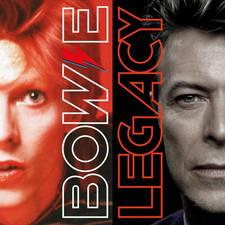Nosferatu: Director Robert Eggers on resurrecting the vampire film that 'invented horror movies'
3 January 2025, 12:05 | Updated: 3 January 2025, 15:05

Robert Eggers has said that making his new film Nosferatu was a dream come true.
The writer and director at the helm of the project - starring Lily-Rose Depp and Bill Skarsgard - is looking to resurrect the infamous vampire for new audiences.
"I've been sort of obsessed with Nosferatu: A Symphony Of Horror since I was nine years old", he told Sky News, adding the film "kind of invented horror movies".
"There's no way that you're not going to be revisiting some things, but hopefully you do it in a more unexpected way."
He added: "Even those girls that come from The Shining and that Freddy Kruger Shadow comes from Nosferatu."
Spawned from an attempt to avoid copyright infringement from Bram Stoker's Dracula, the Transylvanian vampire briefly made its way on screen in 1922 in Nosferatu: A Symphony Of Horror.
Changing the name from Dracula to Count Orlok, the mystical figure and the story around him clearly resembled that created by the Irish author - albeit with a couple of the vampire's characteristics altered.
In the F W Murnau film, Nosferatu's bite location is different to that associated with Dracula. The film also, most notably, introduced the concept that vampires die when exposed to daylight.
Stoker's estate, helmed by his widow Florence Balcombe, took legal action against the silent film and in July 1925, a court in Germany ruled that all copies of Nosferatu: A Symphony Of Horror were to be destroyed for copyright infringement.
Luckily, some reminiscences survived, and the film has served as the reference point and inspiration for a vast number of thrillers and horror movies since.
As a fanatic of the genre, Eggers said the creature led him on the path to become a film director and he wanted to combine both Count Orlok and Dracula's traits to influence his version of the story.
"It took many years before the film was green lit, and it fell apart several times, but I'm glad because I got better as a filmmaker and as a storyteller and more fluid with my creative heads of department and actors," he said.
"I think the most notable difference between this and other versions of Nosferatu or even Dracula is that it centres on Ellen, the female lead Lily-Rose Depp plays - it's her story."
He added: "As far as the vampire goes, one thing that is unique about this movie is that it is the first time that you have a Dracula character looking like a Transylvanian nobleman, looking like a dead Transylvanian nobleman. That was sort of where the look came from, it is from folklore and from history".
The 2025 film stars Depp as Ellen - the woman mentally captured by Skarsgard's Count Orlok. It also features performances from Nicholas Hoult, Aaron Taylor-Johnson, Emma Corrin and Willem Dafoe.
Not one to shy away from peculiar characters, this is Dafoe's second time in a Nosferatu project. He played a version of the vampire in the 2000 film Shadow Of The Vampire and says he finds the genre to be fascinating.
"Movies have the possibility to speak of other worlds and other sensations and other thoughts. And I say, bring it on," the actor said.
"I like these elevated characters and these characters that are or have strong impulses and sometimes superficially have to have extreme looks. And yeah, that's what I go towards".
Read more from Sky News:
What is 'set jetting'?
Neil Young confirmed as Glastonbury headliner
Meanwhile Skarsgard - who also played Pennywise the clown in 2017 horror IT - says it took a while for him to distance himself from the eerie feeling he embodied as Nosferatu.
"It was a very trippy experience," he said.
"Without trying to over romanticise the silliness of what we do for a living, I felt like I needed to channel something that was beyond me. You know, as a line in the movie says: 'Does darkness come from within or from beyond?' And I think part of it also came from your art."
Nosferatu is in cinemas now.
(c) Sky News 2025: Nosferatu: Director Robert Eggers on resurrecting the vampire film that 'invented horror movies'













